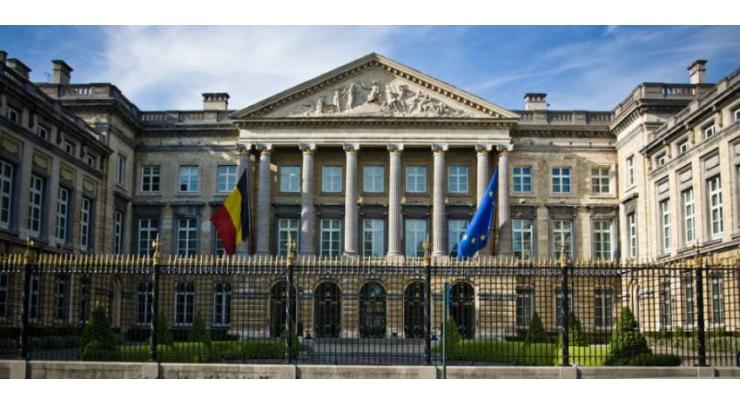
Parliamentary Elections Polarize Belgium's North, South
Mohammad Ali (@ChaudhryMAli88) Published May 27, 2019 | 08:13 PM

The results of the Sunday federal parliamentary elections in Belgium highlighted the political polarization between the French-speaking south, which voted for left-wing parties, and the Flemish north, which chose nationalists who have advocating for the establishment of a confederation
According to a preliminary forecast on the distribution of all 150 seats in the lower chamber, 25 of them will go to the nationalists from the New Flemish Alliance (N-VA), which won 16 percent of the vote, and Vlaams Belang (Flemish Interest) party will receive 18 seats after getting 11.95 percent of the vote. Both parties represent the economically developed north of the country.
At the same time, the southern part of the country, Wallonia, chose to vote for the left. The Socialist Party will receive 20 seats and the extreme left Workers' Party of Belgium will get another 12 seats. In total, the various left-wing parties received about a quarter of the vote.
In addition, two green parties will get 21 seats in total. The position of the liberal Reformist Movement, which was the only French-speaking political force in the previous coalition government, has weakened significantly it will now have 14 seats, which is six seats less than what they got in the previous elections.
The elections showed an increase in political polarization in the country: a major breakthrough of the extreme right from Vlaams Belang (15 more seats) and the extreme left from the Workers' Party of Belgium (12 new seats).
At the same time, the majority of classical and centrist parties received fewer votes in these elections than in the previous one. The Open Flemish Liberals, Democrats, and Humanist Democratic Centre received almost 1.3 percentage points less, and Christian Democratic and Flemish secured 2.7 percentage points less.
A new ruling coalition is not expected to be made easily. N-VA leader Bart De Wever, a popular politician in the north, has already declared that in the context of different political preferences, it was necessary to raise the issue of establishing a confederation in the country.
"Wallonia has moved to the left, more than ever before. The difference between Flanders and Wallonia has never been so significant," he told reporters on Monday.
He also called on people to think about "putting the confederation card on the table."
"How long will we go on like this? Wallonia wants the left parties, let them have the left, Flanders does not want this," De Wever said.
Flemish politician Jan Jambon, a former Belgian interior minister who declared his interest in taking the prime minister's post, earlier called for promoting institutional reform to transform Belgium into a confederation. At the same time, he expressed the opinion that if French-speaking voters voted for the left in the elections, the country would become difficult to govern.
Related Topics
Recent Stories

IHC adjourns PTI founder, Qureshi's appeal till Thursday

CDWP recommends 3 projects to ECNEC for approval

Tarar assures APNS to resolve issues of newspaper industry

Pakistan urged to capitalize on economic stability, for Tobacco Tax Reforms

N. Macedonia polls set to upend ties with EU neighbours

Croatia's ruling party reaches coalition deal with right wing

Bayern coach Tuchel makes three changes for Madrid showdown

Olympic flame arrives on French soil for Paris Games

Punjab Finance Minister announces expansion of Social Protection Authority's man ..

Kenya inks deal to end doctors' strike

Brazil flooding death toll reaches 100

Lebanon security source says five killed in Israeli strikes on south
More Stories From World
-
Football: South African Premiership results
5 hours ago -
Football: South African Premiership table
5 hours ago -
Fiorentina reach Europa Conference League final
5 hours ago -
Fiorentina reach Europa Conference League final
5 hours ago -
Football: Europa Conference League results
6 hours ago -
Tennis: Rome Open results - 1st update
7 hours ago
-
Tennis: Rome Open results
7 hours ago -
Track cycling star Benjamin Thomas escapes to win Giro 5th stage
7 hours ago -
Osaka wins in Rome after three-year absence
7 hours ago -

N. Macedonia polls set to upend ties with EU neighbours
7 hours ago -

Croatia's ruling party reaches coalition deal with right wing
7 hours ago -

Kenya inks deal to end doctors' strike
7 hours ago


